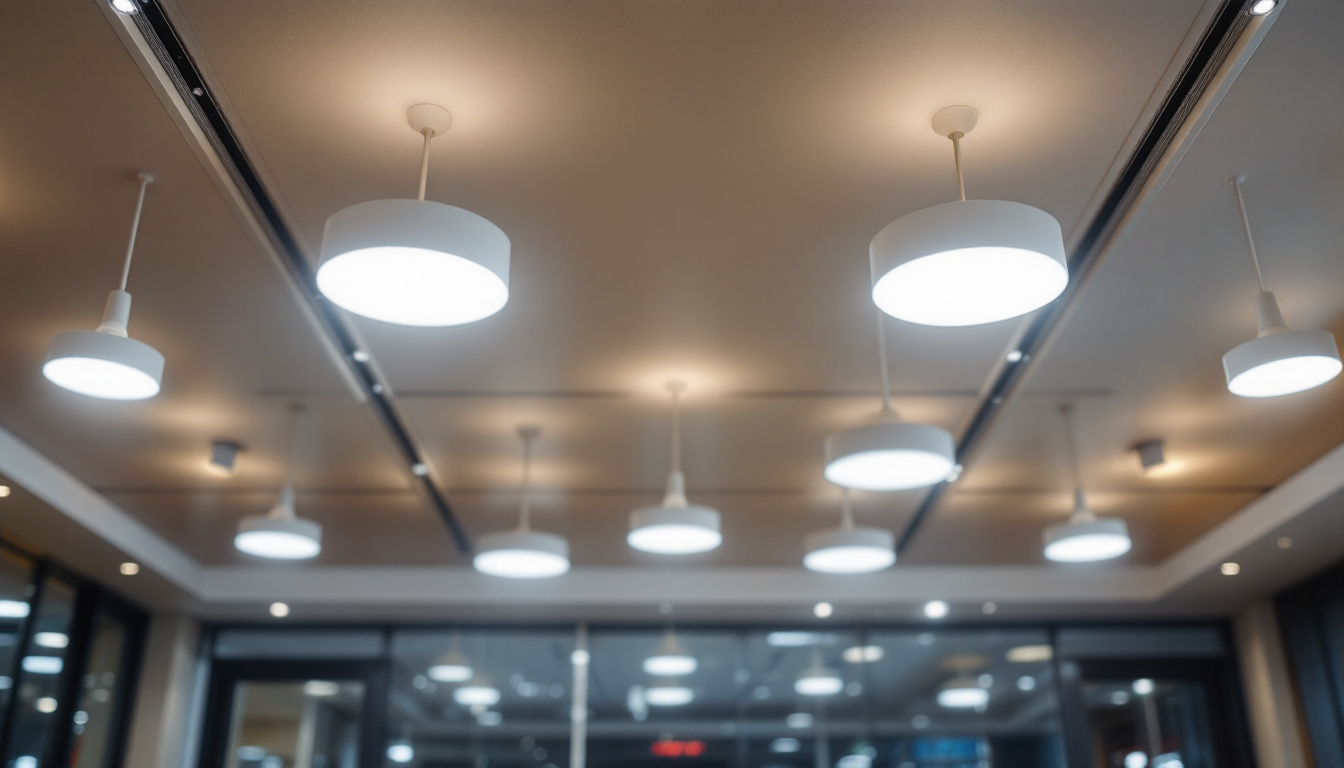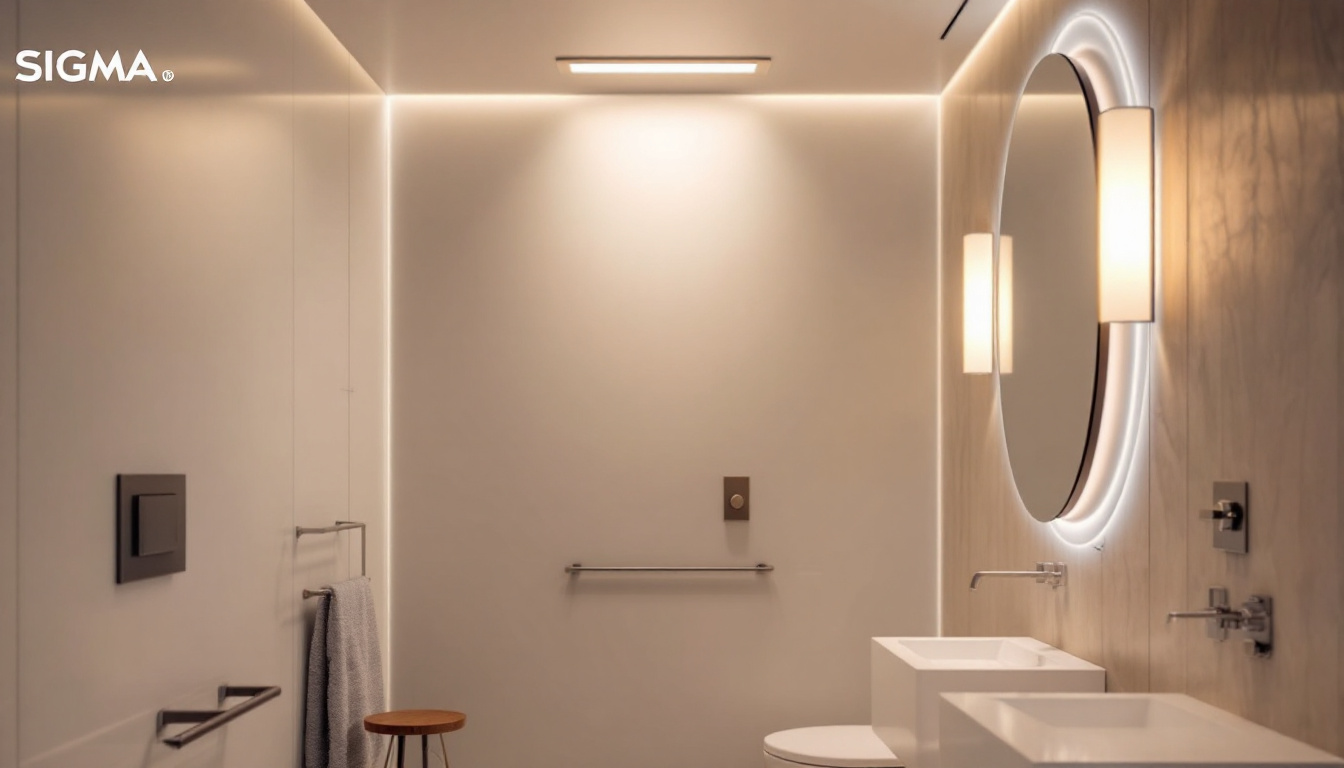
As the demand for sustainable energy solutions grows, solar lighting has emerged as a popular choice for both residential and commercial applications. For lighting contractors, understanding the science behind single solar lights is essential for effective installation and customer satisfaction. This article delves into the components, functionality, and advantages of single solar lights, equipping contractors with the knowledge needed to make informed decisions.
Single solar lights are composed of several key components that work together to harness solar energy and convert it into usable light. Familiarity with these parts is crucial for contractors who want to ensure optimal performance and longevity of the lighting systems they install.
The solar panel is the heart of any solar light. It captures sunlight during the day and converts it into electrical energy through the photovoltaic effect. The efficiency of the solar panel is determined by its material, size, and angle of installation. Most solar lights use monocrystalline or polycrystalline panels, with monocrystalline panels typically offering higher efficiency rates.
When installing solar lights, contractors should consider the location and orientation of the solar panel. Ideally, the panel should be placed in an area that receives direct sunlight for the majority of the day. This ensures that the battery receives adequate charge, which is crucial for nighttime operation.
The battery stores the energy generated by the solar panel, allowing the light to function after sunset. Common battery types used in solar lights include lithium-ion, nickel-metal hydride (NiMH), and lead-acid batteries. Each type has its advantages and disadvantages in terms of capacity, lifespan, and charging efficiency.
Contractors should be aware of the battery’s capacity, measured in amp-hours (Ah), as this will determine how long the light can operate on a full charge. Additionally, understanding the battery’s discharge rate is important for ensuring that the light remains functional throughout the night, especially during periods of low sunlight.
LEDs (Light Emitting Diodes) are the preferred light source in single solar lights due to their energy efficiency and long lifespan. Unlike traditional incandescent bulbs, LEDs consume significantly less power while providing the same level of brightness. This makes them an ideal choice for solar applications, where energy conservation is paramount.
When selecting LED lights for solar fixtures, contractors should consider the color temperature and lumen output. A warmer color temperature (around 2700K to 3000K) creates a cozy ambiance, while cooler temperatures (5000K and above) mimic daylight and are often preferred for security lighting.
Understanding the operational mechanics of single solar lights is essential for contractors who want to maximize their effectiveness. The process involves several stages, from energy capture to light emission.
During daylight hours, the solar panel absorbs sunlight and converts it into electrical energy. This energy is then used to charge the battery, which stores the energy for later use. The efficiency of this process is influenced by factors such as the angle of the solar panel, the intensity of sunlight, and the cleanliness of the panel surface.
Contractors should advise clients on the importance of keeping solar panels clean and unobstructed to maintain optimal performance. Regular maintenance can significantly extend the lifespan of the solar lighting system.
Once the solar panel has generated energy, it is stored in the battery. The battery management system (BMS) plays a crucial role in monitoring the battery’s state of charge and ensuring that it does not overcharge or discharge excessively. A well-designed BMS can enhance battery life and reliability.
For contractors, understanding the BMS is vital, as it can affect the overall performance of the solar light. A robust BMS will help ensure that the light operates efficiently throughout the night, even in varying weather conditions.
As night falls, the solar light’s sensor detects the decrease in ambient light and triggers the LED to illuminate. The amount of light emitted is determined by the energy stored in the battery and the efficiency of the LED. Many modern solar lights come equipped with features such as motion sensors or dimming capabilities, allowing for enhanced functionality and energy savings.
Contractors should consider these features when recommending solar lights to clients, as they can greatly enhance the user experience and effectiveness of the lighting solution.
Single solar lights offer numerous advantages that make them an attractive option for both contractors and clients. Understanding these benefits can help contractors effectively communicate the value of solar lighting solutions.
One of the most significant advantages of single solar lights is their energy efficiency. By harnessing sunlight, these lights eliminate the need for grid electricity, resulting in lower energy costs for users. This is particularly appealing for commercial clients looking to reduce operational expenses.
Moreover, the use of LEDs further enhances energy efficiency, allowing solar lights to operate for extended periods on minimal power. This combination of solar technology and LED lighting creates a sustainable solution that aligns with modern energy conservation goals.
Solar lighting contributes to a reduction in carbon footprints by utilizing renewable energy sources. For environmentally conscious clients, this is a significant selling point. Contractors can emphasize how solar lights help decrease reliance on fossil fuels and promote a cleaner, greener planet.
Additionally, solar lights do not produce harmful emissions during operation, making them a safe choice for both urban and rural settings. This aligns with the growing trend of sustainable construction practices and can enhance a contractor’s reputation as an eco-friendly service provider.
Single solar lights are typically easy to install, requiring minimal tools and expertise. This can be a significant advantage for contractors, as it allows for quicker project completion and reduced labor costs. Most solar lights come with pre-installed components, simplifying the installation process.
Maintenance is also straightforward, primarily involving periodic cleaning of the solar panels and checking the battery’s condition. This ease of maintenance can be appealing to clients, especially those looking for low-maintenance outdoor lighting solutions.
While single solar lights offer numerous advantages, there are also challenges and considerations that lighting contractors must be aware of. Understanding these factors can help contractors provide better service and set realistic expectations for clients.
One of the primary challenges of solar lighting is its dependence on weather conditions. Overcast days or prolonged periods of rain can limit the solar panel’s ability to generate energy, potentially affecting the light’s performance. Contractors should educate clients about this limitation and discuss potential solutions, such as hybrid systems that incorporate backup power sources.
In regions with less sunlight, it may be necessary to install solar lights with larger battery capacities or to consider alternative lighting solutions. Contractors can provide value by assessing the specific environmental conditions of the installation site and recommending appropriate products.
While solar lights can save money in the long run, the initial investment can be higher compared to traditional lighting solutions. Contractors should be prepared to discuss the total cost of ownership, including energy savings, maintenance costs, and potential incentives for using renewable energy sources.
Providing clients with a clear understanding of the long-term benefits can help justify the initial expense and encourage them to choose solar lighting solutions.
The market for solar lights is vast, with a wide range of products available at varying price points. However, not all solar lights are created equal. Contractors must be discerning when selecting products to ensure quality and reliability.
Researching reputable manufacturers and understanding the specifications of different models can help contractors make informed choices. Additionally, offering warranties or guarantees can instill confidence in clients regarding the durability and performance of the products being installed.
The solar lighting industry is continually evolving, with new technologies and innovations emerging regularly. Staying informed about these trends can help contractors remain competitive and provide cutting-edge solutions to clients.
As technology advances, smart solar lighting solutions are gaining popularity. These systems can be integrated with smart home technology, allowing users to control lighting remotely via smartphones or other devices. Features such as scheduling, dimming, and motion detection can enhance the functionality and convenience of solar lights.
Contractors should consider offering smart solar lighting options to clients who value modern technology and automation. This can differentiate their services from competitors and attract a tech-savvy customer base.
Improvements in battery technology are also on the horizon, with innovations aimed at increasing capacity, reducing charging times, and extending lifespan. Lithium-ion batteries are becoming more prevalent due to their efficiency and longevity, and ongoing research may lead to even more advanced solutions.
Contractors should stay updated on battery advancements to ensure they are offering the best products available. Understanding the latest technology can also help contractors educate clients about the benefits of newer battery systems.
As the push for renewable energy continues, solar lighting is increasingly being integrated with other renewable systems, such as wind or hydroelectric power. This hybrid approach can enhance energy reliability and sustainability, making solar lights an even more attractive option for clients.
Contractors should explore opportunities to offer integrated systems that combine solar lighting with other renewable technologies. This can provide clients with comprehensive solutions that meet their energy needs while promoting sustainability.
Single solar lights represent a significant advancement in outdoor lighting technology, offering energy efficiency, environmental benefits, and ease of installation. For lighting contractors, understanding the science behind these systems is crucial for providing effective solutions to clients. By familiarizing themselves with the components, functionality, and advantages of solar lights, contractors can enhance their service offerings and contribute to a more sustainable future.
As the industry continues to evolve, staying informed about emerging trends and technologies will be essential for contractors looking to remain competitive. By embracing the potential of solar lighting, contractors can play a vital role in promoting renewable energy solutions and meeting the growing demand for sustainable lighting options.
Ready to elevate your lighting installations with the efficiency and sustainability of single solar lights? At LumenWholesale, we provide lighting contractors with the highest quality solar lighting solutions at unbeatable wholesale prices. Our spec-grade products ensure you deliver reliable, high-performance lighting to your clients every time. Take advantage of our hassle-free bulk buying options, complete with free shipping, and secure the best value for your projects. Don’t settle for less—choose LumenWholesale for quality, affordability, and convenience. Explore our selection and start saving today!

Discover innovative strategies to future-proof your lighting projects with suspended ceiling light covers.

Discover how long LED light bulbs can revolutionize your lighting installations by enhancing energy efficiency and reducing costs.

Discover essential tips and expert advice for lighting contractors on installing recessed shower lights.

Discover why staying updated on decorative ceiling fans is essential for lighting contractors.